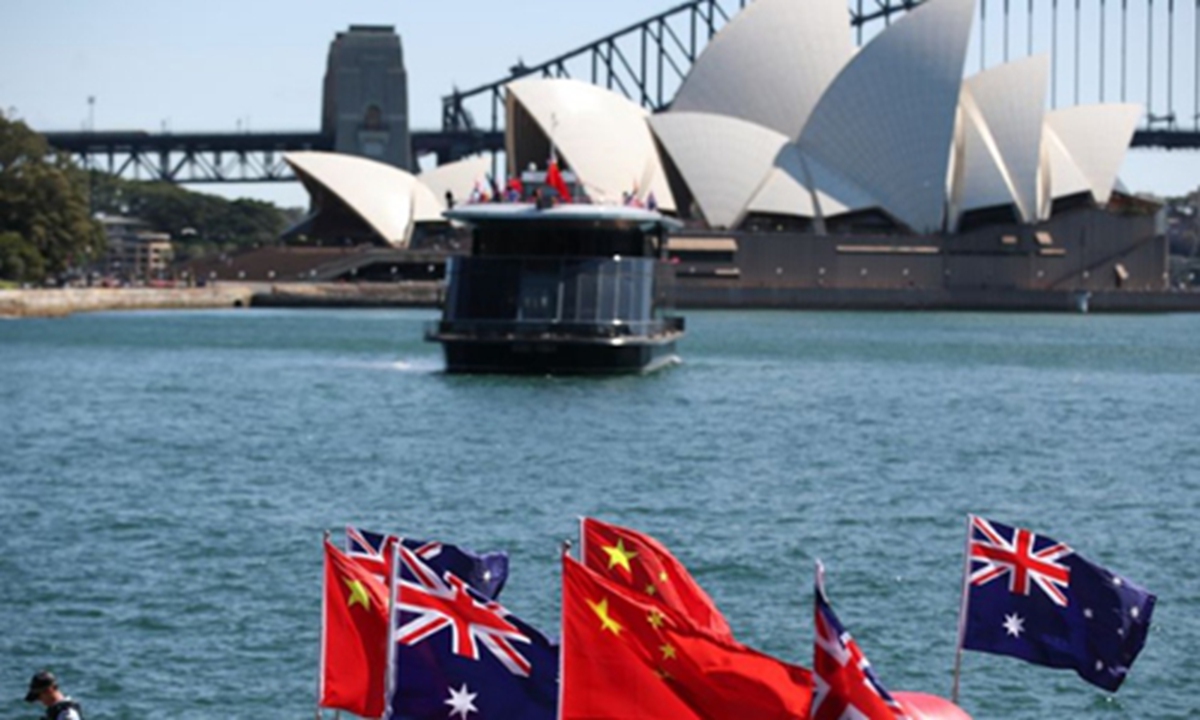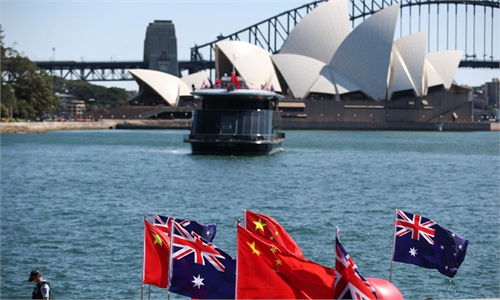
File photo
That a cooling off in China-Australia trade relations has arrived comes as no surprise amidst escalating tensions between the two sides, begging a further question: how low can bilateral trade between the countries go?
Australia's exports to China slumped by nearly a quarter year-on-year and a fifth month-on-month to reach 61.76 billion yuan ($9.04 billion) in August, according to statistics released by China's General Administration of Customs.
Bilateral trade fell markedly, with the overall trade in goods between China and Australia amounting to 93.26 billion yuan in August, down 15.2 percent month-on-month and 12.8 percent year-on-year. The Australian trade slump comes at a time when China's foreign trade grew 6 percent in August year-on-year.
Evidently, with no sign of an end to the months-long political confrontation between the two countries, traders are beginning to see the fallout from a rapidly deteriorating relationship between Beijing and Canberra.
The worrying development is also being supported by data from the Australian side, which saw its trade surplus almost halve in July, plunging a staggering 43.8 percent from June's highs as exports fell sharply, led by iron ore.
Some in Australia may blame China's hardening policies for Australia's dire trade performance. It is true that China has implemented several remedial trade measures targeting certain Australian products or producers in past weeks, but none of these had a substantial impact on trade.
If anything, the trade loss may only indicate China's decreasing trade enthusiasm for Australian goods.
There is no indication as to how long the cooling period will last, but if political tensions are not mitigated in the coming months, at the current rate of trade slide, it's not hard to imagine bilateral trade contracting by half from July's peak.
If that happens, it would be unfair to accuse China of failing to buy Australian goods as usual. The actions of Australian politicians in recent months indicates that they don't value trade ties with China as highly as their political interests.
For instance, Canberra recently rejected China's claim of legitimate territorial rights in swathes of the South China Sea in a filing to the United Nations, a serious infringement on China's sovereignty.
Moreover, some US-funded think tanks have been playing up Australia's political hostility toward China, only adding to the negative atmosphere.
Fundamentally speaking, if the Morrison government is unhappy or feels threatened by the trade status quo with China, it is neither China's fault nor its responsibility.
It is not China's desire to see bilateral trade suffer such a heavy blow, affecting the interests of businesses on both sides. Australian politicians starting from Morrison need to seriously reflect on the political ploys that have driven China-Australia relations to a freezing point now.



